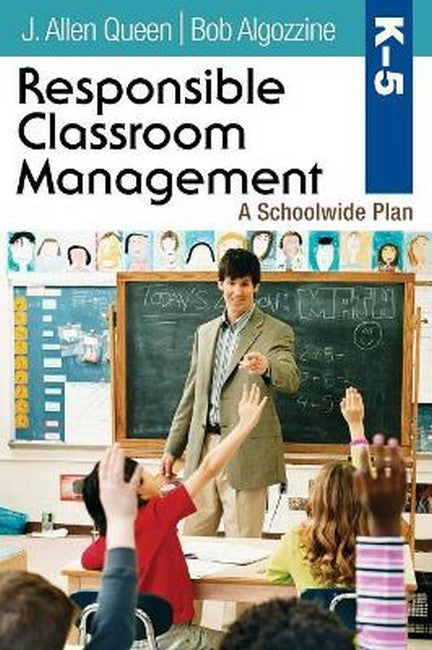J. Allen Queen is professor and former chair of the Department of Educational Leadership at The University of North Carolina at Charlotte. A former classroom teacher, principal, college administrator, and university professor, he works with teachers and principals in the areas of managing priorities, time management, and stress reduction. Queen has written over 30 books and 70 articles, including The Frazzled Teacher's Wellness Plan (Corwin Press 2004), The Block Scheduling Handbook (Corwin Press 2002), and books on karate and fitness for young readers. He has appeared on radio and television programs, including ABC's World News Now, and has been a consultant to over 160 schools and districts in 36 states and 3 foreign countries in the areas of classroom discipline, school safety, block scheduling, and time management. Bob Algozzine is a professor in the Department of Educational Leadership at the University of North Carolina and project codirector of the U.S. Department of Education-supported Behavior and Reading Improvement Center. With 25 years of research experience and extensive firsthand knowledge of teaching students classified as seriously emotionally disturbed, Algozzine is a uniquely qualified staff developer, conference speaker, and teacher of behavior management and effective teaching courses. He is active in special education practice as a partner and collaborator with professionals in the Charlotte-Mecklenburg schools in North Carolina and as an editor of several journals focused on special education. Algozzine has written more than 250 manuscripts on special education topics, including many books and textbooks on how to manage emotional and social behavior problems.
Request Academic Copy
Please copy the ISBN for submitting review copy form
Description
List of Tools Acknowledgements About the Authors Introduction 1. Understanding The RCMPlan (TM) The RCMPlan (TM) Becoming a Successful RCM Teacher A Model for Improving Instruction and Behavior An Invitation to Change: The RCMPlan (TM) Inventory Looking Ahead 2. Teaching Students Responsibility Within Warm and Inviting Classrooms The Original and Still Functional Correlates for Teaching Responsibility Expecting Responsibility and Civility in the Classroom Experimenting With Responsibility and Civility in the Classroom Modeling Responsible Behavior The Four Types of Inviting Teachers Preparing to Modify Classroom Procedures Student Roles and Additions to the Classroom Group Activities Looking Ahead 3. Standards, Guidelines, and Expected Behaviors Why Rules Do Not Work With Elementary Children Replacing Rules With School and Classroom Standards, Guidelines, and Expected Behaviors Building School Guidelines for Outside the Classroom Developing Classroom Guidelines Teaching the Standards and Guidelines to Students Looking Ahead 4. Using Consequences to Teach Responsibility Using Logical Consequences Versus Punishment Developing a Pool of Consequences for Selective Use in the Classroom Consequences for More Serious Infractions: The Intensive Care Unit (ICU) Using ICU Effectively Behavior Improvement Agreements (BIAs) The DRC's Supervisory Process A Sample of Grade-Specific Consequences Group Activities Looking Ahead Resource A: The RCMPlan (TM) Principal's Guide Resource B: The RCMPlan (TM) Toolbox References Index
"The Responsible Classroom Management (RMC) plan really lets teachers teach and the principal serve as the instructional leader. RMC is a brilliant concept that has been tested nationally with results that have cut office referrals by as high as 80% and dropout rates by 50%. Now, principals and selective teachers can use this book with steps for implementation to prepare the entire faculty or even the district in this wonderful program that truly takes students from a stage of entitlement to a real-life world of being responsible for their own actions from day one." -- Chris Lineberry, Principal "This book goes into great detail on how to establish a schoolwide discipline program and the step-by-step process for introduction and implementation. Involving students and parents are key elements outlined in the book for ownership in the program. I would recommend this book for any school, administrator, or teacher seeking ways to improve schoolwide discipline and effective classroom management." -- Jim R. Watson, Assistant Professor

